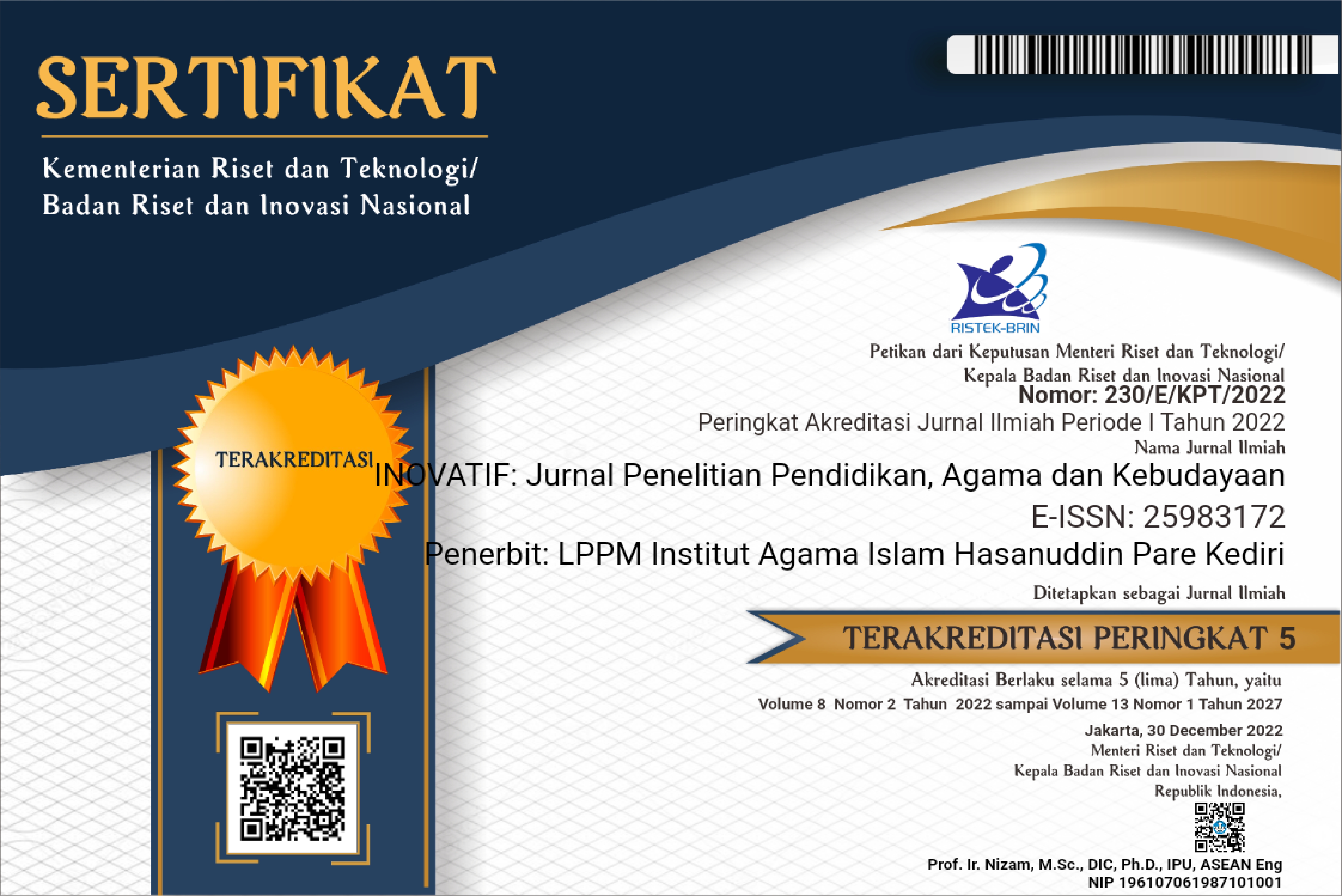IMPLEMENTASI BAHASA JAWA KRAMA DALAM PEMBENTUKAN KARAKTER ANAK SEKOLAH DASAR DI MI ‘ULUMIYAH PARE
DOI:
https://doi.org/10.55148/inovatif.v11i1.1274Abstract
Abstract
This study focuses on the importance of implementing Javanese Krama in character building for students at MI 'Ulumiyah Pare, with a focus on teaching the values of politeness, ethics, and etiquette. The method used is a descriptive qualitative approach, involving in-depth interviews with teachers and students, as well as observations to identify the practice of using Javanese Krama in schools. The collection data were analyzed descriptively to understand the patterns in the application of this language in shaping students' characters.
This study aimed to analyze the role of Javanese Krama in shaping students' characters, as well as to identify challenges and supporting factors in its implementation. The findings show that the use of this language has a strong foundation in various educational theories, including Vygotsky's socio-cultural theory, which emphasizes the importance of social interaction in learning, and Thomas Lickona's character education theory, which integrates knowledge, feelings, and moral actions. Through the practice of Javanese Krama, the students can develop an attitude of respect and ethical awareness, which are internalized through daily conversation and social interaction.
However, this study also found challenges in its implementation, such as the complexity of vocabulary that makes 40% of students experience difficulties, as well as the influence of the modern environment that causes a decrease in the use of the language at home. Teachers act as facilitators who encourage this practice with positive reinforcement, which is in line with Skinner's behaviorism theory. Support from family and community is also very important, as highlighted in Berry's acculturation theory and Bandura's social learning theory, to ensure the sustainability of the use of Krama Javanese. This study underscores the importance of a collaborative approach between schools, families, and communities in supporting sustainable character education through language.
Keywords: Krama Javanese, Character, Elementary School Children
References
Downloads
Published
Issue
Section
License
Please read Copyright Notice for Inovatif: Journal of Research on Religious Education and Culture









